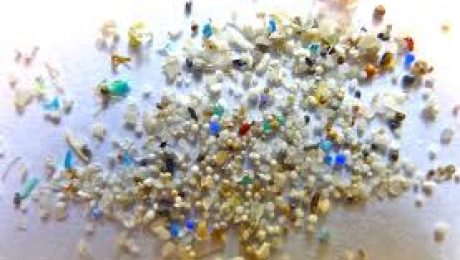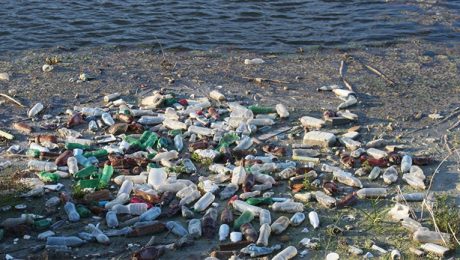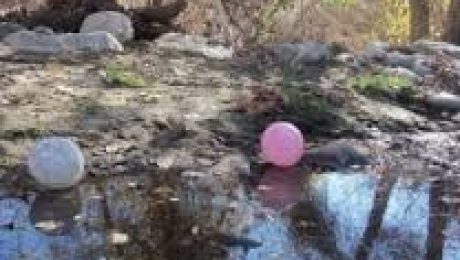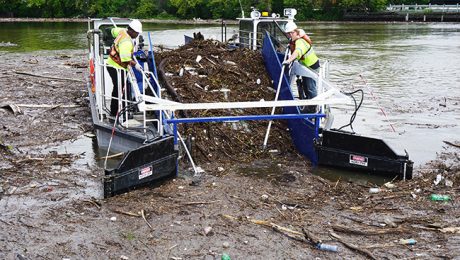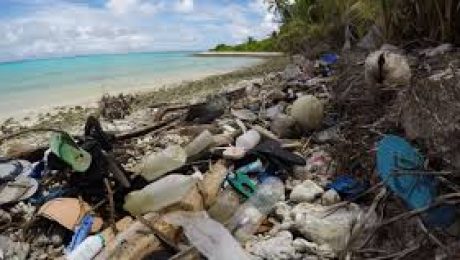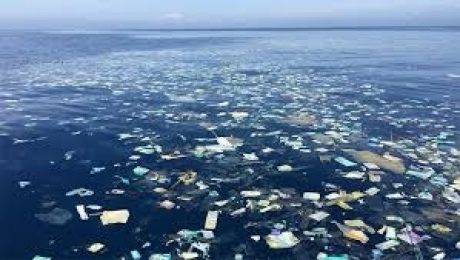Trash of all kinds exists in the ocean – clean-up crews have found cigarette butts, glass bottles and even mattresses. But the most common type of trash found in the ocean’s gyres (circular currents formed by wind patterns and the earth’s rotation) is tiny pieces of broken down plastics, known as microplastics. Microplastics, as well
A new bill introduced in the Senate would provide a route to funnel more money to states plagued by marine debris — the millions of tons of trash that drifts toward U.S. shores, littering coastlines and tangling in fishing nets. The bill focuses on using the National Oceanic and Atmospheric Administration’s authority to authorize more
Seabirds like albatrosses belong to the most threatened bird group in the world. Coincidentally, this group of birds (Procellariiformes) also ingests the highest amount of human garbage found in oceans around the world. At this very moment, 250,000 tonnes of garbage is drifting through the world’s oceans and threatening marine wildlife who mistake it for
Fishtrap is one of the larger lakes in Eastern Kentucky, at more than 1,000 acres, and it attracts about 200,000 visits per year. Boaters also frequent Fishtrap to cruise and admire the steep mountains and rocky outcroppings that jut up from the banks. The U.S. Army Corps of Engineers resource manager at Fishtrap said the
In 2012, an environmental star of sorts was born, celebrated by Milwaukeeans, especially those who enjoy strolling along the Milwaukee Riverwalk or kayaking on Milwaukee River. The Lynyrd Skymmr is a 50-foot-long river skimmer that cruises Port Milwaukee‘s waterways several times a week to collect floating debris — dead fish, plastic bottles, branches and other
In the first study of its kind, an Institute for Marine and Antarctic Studies (IMAS)-led research team estimates that more than 560,000 hermit crabs have been killed on the Cocos (Keeling) Islands in the Indian Ocean and the Henderson Island in the Pacific after being trapped in plastic debris. The study was carried out by
A district in Amsterdam is currently testing an innovative way to prevent plastic waste from flowing out to the sea. It involves using an air bubble barrier. A perforated tube carries compressed air at the bed of the canal and emits a bubble barrier. The bubbles essentially trap plastic waste without disturbing aquatic life or
While the true solution to curb the pollution problem lies in several areas such reducing the single-use plastic items as well as better recycling programs. However, Aquarius Systems does offer a Solution to the Pollution that plagues rivers, lakes, reservoirs, and other waterways; it is an Aquatic Trash Skimmer. Marine debris is not a new
West Coast beachcombers have treasured the rare sightings of Japanese glass floats; spherical buoys strung together to aid fishermen in managing their catch. It was once thought that these translucent orbs took nearly a decade to reach the U.S.–traveling up to 8,000 miles of open sea. But in 2011, 5 million tons of debris was
The Balkan nations have poor waste management programs, and tons of garbage routinely end up in rivers, including the occasional washing machine or computer screen. A broken barrier this week caused a massive buildup of garbage on the Drina that has threatened Bosnia’s Visegrad dam. Officials say that between 6,000 and 8,000 cubic meters of
- 1
- 2

